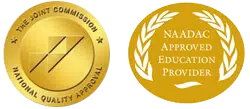The Covid-19 pandemic, with frequent lockdowns, mandatory quarantine periods, and a persistent climate of unease and fear of illness, increased the rate of addiction in many communities. The United States is facing a worsening substance abuse epidemic, as more than one in ten adults has started or increased their use of drugs or alcohol to cope with pandemic stress.
In fact, deaths due to drug overdose significantly increased during the pandemic, primarily opioid-related. Between 2019 and 2020, drug overdose deaths rose a whopping 30%, the highest on record.
Covid-19 and Typical Triggers For Addicts
Many addicts share common “triggers,” feelings or situations where the urge to use drugs or drink is stronger. Loneliness, uncertainty, worry about a job or finances, and isolation from friends, family, and loved ones all contribute to increased substance abuse.
People who were already drinking before the pandemic were more likely to increase their drinking at high-risk levels after lockdowns started. Many people were self-medicating to find relief from loneliness and the unpleasant emotions that isolation and uncertainty brought out.
Lack of Group Support
However, as a coping strategy, alcohol and drug use is an ineffective solution. Prolonged drinking leads to heightened anxiety, which, in turn, may trigger the drinker to consume more. Support and reducing feelings of isolation can help.
Isolation is one of the biggest triggers for people struggling with addiction. Group therapy and support, whether through an organized 12-step program, an outpatient recovery center, or spending time with sober friends, was largely shuttered during the pandemic. Some people may have found help through Zoom and other virtual meetings, but many others increased their drug or alcohol use when treatment centers shuttered.
Increased Substance Use in the Workplace
Working from home, and the more relaxed standards that went along with it, may have contributed to the higher instances of people drinking or using drugs while working. Since you can’t smell someone’s breaths from a computer screen, and since there was no immediate oversight of substance abuse behavior at home, people started using while working, too.
A dramatic rise in substance use has led some companies to expand their employee assistance programs or encourage workers to attend meetings. Other companies may have bolstered medical benefits and relaxed time-off restrictions for people who seek treatment.
COVID-19’s Impact on the Addiction Epidemic
The threat of the spread of coronavirus put a hiatus on large group gatherings, traditionally one of the most common types of recovery support. People who relied on their daily or weekly group support meetings were now largely stuck at home.
It’s easier to maintain sobriety with focused treatment plans, relapse prevention strategies, and the support of a sober group. Accountability is essential to recovery, which is why at Baystate Recovery Centers, we offer a support network with accountability and professional counseling to help addicts heal in a safe environment.
Are You Struggling With Drug or Alcohol Use?
Are you concerned about your drug or alcohol use or about that of a loved one? We can help. Baystate Recovery Center offers addiction treatment from compassionate, professionally trained addiction counselors. We offer several structured treatment plans, including intensive outpatient treatment, day treatment, and family support groups. Call us today or visit us online for a confidential conversation to discuss your options.
Baystate Recovery Center, a clinically Infused 12-Step Treatment Center for Drug and Alcohol Addiction, was founded by two partners in addiction treatment services, John Checchi and Michael Wilson.



